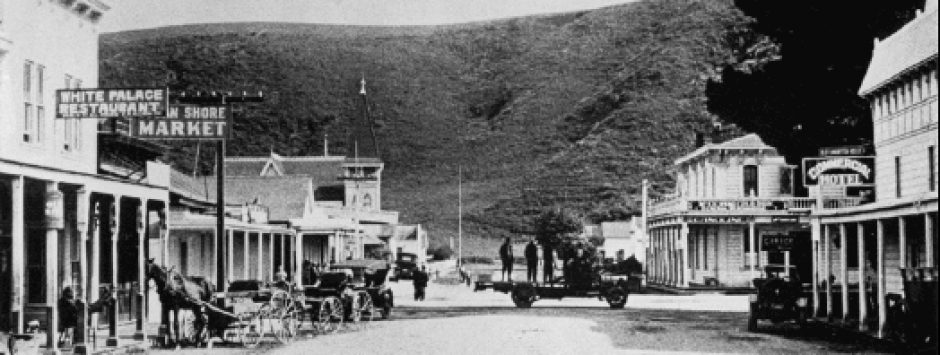Mini-interview with fisherman-writer Rob Tillitz
To visit Rob Tillitz’s website, please click here
June: Last year while working on the Princeton “book,” I met a former Coastsider who said he had been “one of the bad boys.” Were you one of the bad boys, and what did that mean?
Rob Tillitz (RT): I don’t know of any particular group, or surreptitious meaning, other than the obvious, to the term bad boys. I assume he said it in such a way that made you think otherwise. I can’t add anymore to that than what you can already figure.
June: Did you spend a lot of time in and around the ocean?
RT: My childhood in Pescadero was centered around the creek. But as soon as we moved to Montara, to a house with an ocean view, I started prowling the rocky seashore there. Looking for abalones, eels, mussels, rock fish. We later moved to El Granada and had an ocean view there too–a harbor-entrance view. Then I started hanging out in Princeton and went fishing. From the time I first saw the Farallon Islands on a clear day from our Montara front window, I was hooked. I spent all my time either on the ocean, or talking about it, or dreaming about it. Now I write about it, moreover call my friends that still fish and listen to what the have to say. Long answer: Yes, I spent most of my life concerned with the ocean. Once it gets you, she doesn’t let go.
June: Most people think that real fishermen spend hours alone, that fishermen are a “type” representing an individuality that is rapidly disappearing. Is any of my statement true? How does it relate to you?
RT: Fishing is most certainly a lonely and reclusive profession. You have to be a person who likes solitude if you’re going to enjoy longevity in the business. And the business has always been a haven for characters and individuals. In time past, maybe as recent as the 70s-80s, it was almost lawless. We governed ourselves, and policed ourselves. It was only when the 200-mile limit came about in the late 70s, that the government began to get involved. So, yes, all of your statement is true. Because of many reasons, mainly economically based factors, very few youngsters are getting involved these days, and the old-timers are calling it a season–for the last time–one by one. But, there is still a living to be made, and always will be, thus it is not a dying profession. As long as people eat fish, there will be fishermen to catch it. And those fishermen will be of a character, you can bet on that!
—–
More of the mini-interview with Rob Tilliz, please click here
